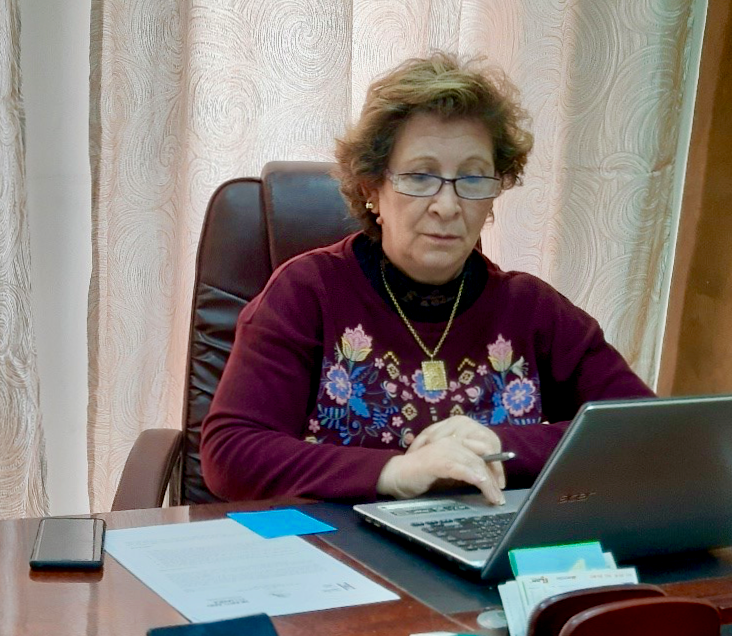Take Five: “Violence and instability constrain Iraqi women and girls to traditional roles, limiting their access to employment and education”
Date:

Eman Abd Alrahman is a lawyer from Iraq and the Head of the Women Leadership Institute (WLI), a prominent women’s rights organization, working to provide protection services for women survivors of violence in the context of the European Union-UN Women Regional Programme Strengthening the Resilience of Syrian Women and Girls and Host Communities in Iraq, Jordan and Turkey supported by the EU’s Regional Trust Fund in Response to the Syrian Crisis, the Madad Fund (EUTF Madad).
How did you become a women’s rights advocate?
Throughout my 15-year career as a lawyer, I came across many vulnerable, marginalized and oppressed, yet determined women. Their rights were not within their reach and justice was elusive for many of them. In 2003, I started working with local civil society organizations which provided me with an opportunity to advocate for women’s rights and raise awareness of their plight.
What are the main challenges facing women in Iraq?
A strong conservative culture, economic sanctions and armed conflicts have led to economic, social and political marginalization of women in Iraq. In today’s Iraq, women suffer from insufficient education and work opportunities and healthcare as well as high levels of violence and inequality. These conditions are often exacerbated by traditions and cultural norms as well as a lack of awareness of women’s rights and potential. Also, violence and instability constrain Iraqi women and girls to traditional roles, limiting their access to employment and education.
Challenges vary by region. For example, in Anbar where we are operating, the most common type of violence against women is psychological violence according to data from our Gender-Based Violence Information Management System (GBVIMS). Married women are the largest segment exposed to this kind of violence. In Kirkuk, on the other hand, our data shows that economic violence is the most cited type of violence affecting women. This includes unpaid work and lack of financial decision-making power where men forcibly control women’s incomes.
While there are a lot of employable women in Kirkuk, job opportunities remain limited. Another challenge is sexual harassment at the work place, be it physical or verbal. Despite these challenges, women are very motivated when opportunities arise and regard job opportunities as a means to economic security, decision-making power and to decreasing their vulnerability to violence.
What are your priorities in relation to women’s empowerment in Iraq?
Our main priority is to combat violence against women. To do so, Iraq needs to reform existing personal status laws and penal codes as well as discriminatory customs and norms. We are working towards more legal protection for women in Iraq. I participated in the preparation of the Iraq shadow report on implementation of the Convention on the Elimination of all Forms of Discrimination against Women (CEDAW), and in the development of the National Action Plan for UN Security Council Resolution 1325 on Women, Peace and Security.
Law enforcement needs to be strengthened, and efforts should focus on the proliferation of light weapons as these have been used in domestic violence situations. Another challenge we are grappling with is the deteriorating security situation and the presence of armed forces outside of the state’s control which are detrimental to women’s safety and protection.
What is your center doing to support survivors of violence?
At our centers, gender-based violence survivors can find physical protection. This is no easy task. According to prevalent norms and customs, if a woman seeks refuge in such places, it means that she is an outcast without family support. This puts us in a position of dealing with taboos, which sometimes results in hostility towards women in our centers. We respond to this by intensifying outreach efforts to those at risk of violence, including conducting door-to-door and hospital visits.
What are some concrete results under this partnership with the EU and UN Women?
Through our partnership with UN Women under the Madad Programme, 261 women and girls accessed the Anbar Safe Space services, including psychosocial and legal support between July and September 2018. In the same period, the Kirkuk safe place supported 383 women and girls.